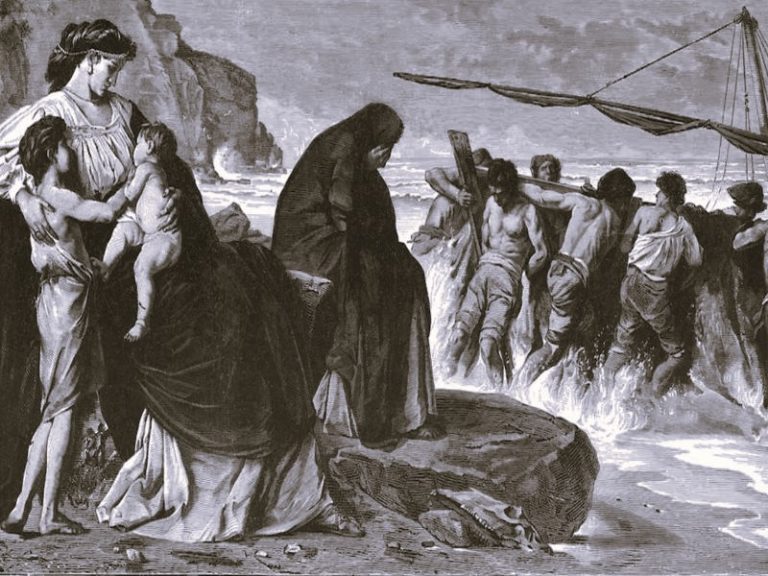


By Dr. David R. Brockman
Nonresident Scholar
Baker Institute for Public Policy
Rice University
It’s an especially bitter irony. You might expect that the rise to power of politicians who either are outspokenly Christian or have overwhelming support from conservative Christians would bring to government the virtues Jesus taught, like mercy and compassion. Instead, it’s brought cruelty.
Grounded in a white conservative Christian tribalism, many of the recent policies coming out of Washington, D.C., and Austin reveal apolitics of cruelty. To immigrants, LGBT people, women who don’t share conservative Christian views about pregnancy, and others, those policies say: If you’re not one of us, the hell with you.
Though a force in American and Texas politics for decades, conservative Christians arguably have never been more powerful than they are now. In Trump they’ve found their “dream president.” In Texas, Lieutenant Governor Patrick, who calls himself “a Christian first, conservative second and Republican third,” has led the Christian Right to victory in its long civil war against moderate, business-oriented Republicans.
And conservative Texans who vote from the pew seem pleased with their leaders. A June poll showed that more than 60 percent of Texans who take the Bible literally approve of Trump (versus only 47 percent of Texans overall). Fully half approved of Patrick, versus 36 percent of all Texans.

But there’s perhaps never been a bigger disconnect between the gospel and politics. It’s hard to see how the heartless policies of the Christian Right politicians running this state and country tally with the teachings of Jesus — especially care for the vulnerable and the stranger, and love not only for our neighbor but also our enemies.
That’s true of Trump’s treatment of immigrants, many of whom are refugees legally seeking protection from gang-related or domestic violence. Besides making it difficult, perhaps impossible, for those people to qualify for asylum, Trump’s “zero tolerance” policy has torn thousands of migrant children from their parents. Children as young as 10 have described experiencing “enforced hunger, enforced dehydration, enforced sleeplessness, coupled with insults and fairly routine physical assaults.”
Other inhumane policies are designed to force all Texans to live according to conservative Christian beliefs. An obvious example is last year’s bathroom bill targeting transgender Texans, who already face harassment and discrimination. Another, the subject of an ongoing federal court case, is the new law requiring women to bury or cremate fetal remains from abortions and miscarriages — regardless of the woman’s own beliefs. The provision reflects the conservative Christian notion that the fetus has an “inalienable right to life” from “the moment of fertilization,” a belief with which others, including many religious Texans, disagree.

Essentially, the Legislature took a policy already in effect at some Catholic hospitals and mandated it statewide. Blake Norton, an Austin woman who was compelled to consent to burying the remains from her miscarriage by a Catholic hospital in Austin, tearfully recounted the experience in court last month. “I was being forced into adopting the hospital’s value system regardless of what I wanted and needed,” she said.
Yet policies targeting vulnerable populations are nothing new at the Texas Capitol. Especially shameful is the treatment of severely disabled children under conservative Christian leadership. Looking for cost savings, the GOP-led Legislature in 2013 turned Medicaid services for “medically fragile” kids over to private companies and a few nonprofits; then-Senator Patrick co-authored the bill. Since the program’s 2016 rollout, it has been riddled with problems that put disabled Texas children at risk.
Running like a red thread through these policies is the bitter irony that they’re the work of governments dominated and supported by Christians.
Some evangelical leaders contend, on questionable biblical grounds, that Jesus’ teachings about love of neighbor apply to individuals, not government. But much of the disconnect between gospel and politics may stem from fear of social change and a longing for an America where white conservative Christians are firmly in charge.
Trump is frighteningly adept at tapping into and exploiting white Christian fears of social change, particularly the influx of Latin American and Muslim immigrants. It’s likely that the United States will be minority white by 2045, and polls show that most white evangelicals view that as a negative development. Nearly half support barring refugees from the country altogether.
Patrick, too, regularly taps into fears among his religious right base. Most recently, he made the unfounded claim that Americans’ loss of faith, along with legal abortion, are to blame for school shootings. Last year, the lieutenant governor was joined in his failed crusade against transgender Texans by several Christian Right figures, such as Houston pastor Dave Welch and Vision America founder Rick Scarborough.
I called and emailed Patrick’s office with a request to discuss how religion plays into his policymaking, but got no response.

Many conservative Christians are willing to support a twice-divorced, foul-mouthed president, or a former Houston shock jock who found Jesus after making a fortune, because they believe Trump and Patrick will deliver on the religious right’s grab-bag of political goals — such as ending legal abortion, overturning same-sex marriage, “keeping men out of women’s restrooms” and so on. The ends, it seems, justify the means.
Yet most conservative Christians I know personally, many of them Republicans, are decent people who sincerely seek to live a godly life that doesn’t involve caging children or stigmatizing women who’ve suffered a miscarriage.
So I end with a question for them. Whatever your reasons for backing politicians like Trump and Patrick, do they justify mistreating some of our most vulnerable neighbors, children included? Can they possibly justify a politics of cruelty?
Originally published by The Texas Observer, 08.10.2018, republished under non-indexable fair use for educational, non-commercial purposes.






